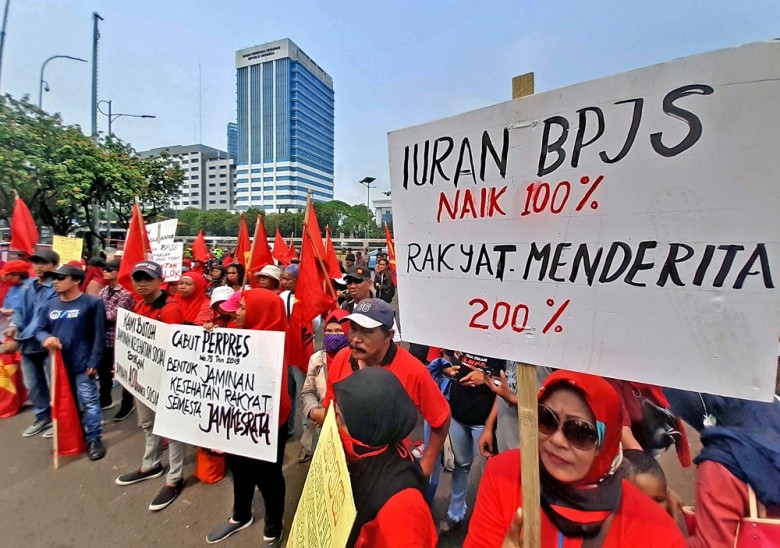Popular Reads
Top Results
Can't find what you're looking for?
View all search resultsPopular Reads
Top Results
Can't find what you're looking for?
View all search resultsNew Year's bitter pill
Change text size
Gift Premium Articles
to Anyone
O
n Jan. 1, premiums for the National Health Insurance (JKN) will increase, affecting around 222.8 million people covered under the program.
The increased premiums will be a bitter pill for citizens to swallow after years of poor management by the Health Care and Social Security Agency (BPJS Kesehatan), which has seen the program fall into perpetual deficit that is estimated to reach Rp 32.8 trillion (US$2.35 billion) this year.
President Joko “Jokowi” Widodo agreed to double premiums for all three classes of services, forcing some to consider lowering their type of service or opt out of the program altogether.
Beyond imposing higher premiums, the government must address the mismanagement by BPJS Kesehatan and health providers that has been the main cause of the deficit.
Poor oversight has contributed to mounting claims for several types of treatment, which reflects poor judgment by doctors and hospitals.
C-section surgeries, for instance, were performed for 17.6 percent of all births in 2018, according to the Basic Health Research (Riskesdas). This represents a steady increase from 15.3 percent in 2010.
The figure is also higher than the World Health Organization’s estimation that 10 to 15 percent of all births medically require C-section surgery.
C-sections accounted for 57 percent of the 5.3 million hospital deliveries under the JKN scheme recorded between 2014 and 2018, costing BPJS Kesehatan Rp 15.75 trillion as compared to the Rp 4.9 trillion it spent on natural deliveries in hospitals over the same period.
In a country where maternal deaths are still a serious problem, mothers must receive the best care. But this does not mean they all require a C-section. While ensuring there are enough midwives and sufficient health facilities to support normal births, stricter criteria should be used to determine when a C-section is necessary under the JKN scheme.
At the end of the day, the state health insurance program is largely supported by tax revenue and is counted on by millions of people.
Increased premiums may cover part of the deficit, but it will not solve the problem for good as long as the government does not implement better controls on what the insurance can and cannot cover.
If the government spends money on people who do not really need it, it may be unable to help those who really need the services.
Nevertheless, a big part of the problem lies with citizens. One issue is a lack of awareness about obligations to pay the premiums, with people treating it as typical household expenses that can be delayed until someone is severely ill. As many have discovered when rushing an infant to the hospital, failure to pay your premiums can result in your insurance membership being suspended, which can only be restored at least two weeks after payments are settled.
Another problem is a sense of entitlement to health services, with people becoming less focused on trying to stay healthy. With many illnesses partly blamed on unhealthy lifestyles, consistent campaigns are needed to instill an awareness that prevention is much better that treatment.










